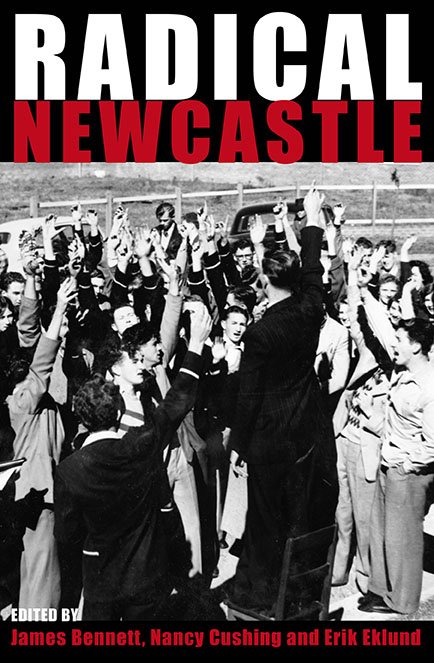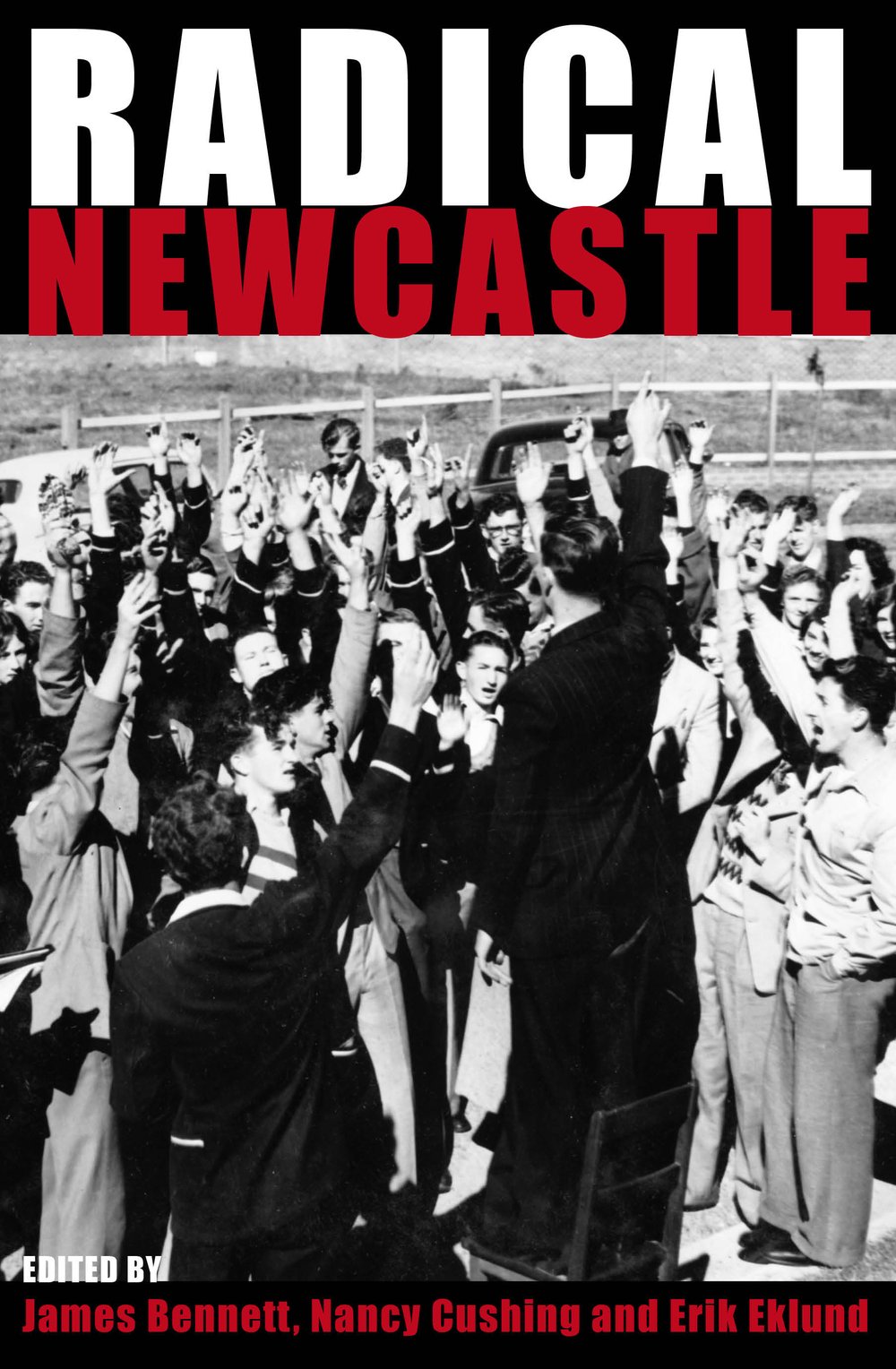Newcastle in New South Wales is a city that has seen its fair share of radical action. But what does it mean to be ‘radical’ today? And why has Newcastle been the site for so much grassroots radicalism over the decades? Radical Newcastle, edited by James Bennett, Nancy Cushing and Erik Eklund, explores these questions and more.
After a period in the doldrums, the term ‘radical’ is back. It fills the front pages of our newspapers and our social media feeds, accompanied by images of masked men in black carrying automatic weapons, and the aftermath of terrorist attacks. Radicalisation is presented as something to be avoided at all costs and radicals as a danger to civilisation.
Radical Newcastle challenges this contemporary use of the word and instead looks back to its original meaning. Radical comes from the Latin radix, meaning root, and the radical lives and actions treated in this book were aimed at effecting change at the roots of society. Their goal was to bring about far-reaching political and social reform which would improve the lives of the disadvantaged and protect the vulnerable. While there is violence in Radical Newcastle – during coal miners’ strikes in the nineteenth and early twentieth century, the 1979 Star Hotel riot and pro choice rallies in the 1980s – it was often directed at the radicals rather than coming from them and the single instance of a loss of life was from a policeman’s bullet outside the Rothbury Mine in 1929.
The ideas and stories of radicalism highlighted in the book showcase the individuals and the issues that attracted attention throughout the city’s history, from the early convict settlement with its population of second offenders through to the resistance to the proposed high-rise redevelopment of the inner city highlighted last year in the Independent Commission Against Corruption. Together, these accounts bring to light a richer and more diverse image of both radicalism and Newcastle, one of Australia’s oldest cities and its seventh largest centre of population. The stories demonstrate the significant role Newcastle has played not only in Australian history but in transnational political and social movements ranging from communism to feminism to environmentalism.
‘From an historian's perspective, there is so little written about Newcastle,’ said Radical Newcastle co-editor Dr James Bennett. ‘The whole radical side of Newcastle's past really needs to be excavated, needs to be unearthed.’
‘So in one sense, I think it is a supressed narrative that needs to come to the surface.’
All of the forty contributors approach their topics from a point of deep engagement, whether as scholars, participants, relatives of activists or all three. In doing so, they add a new dimension to existing interpretations of these topics and in some cases challenge them.
In their chapter on socialist activism in Newcastle, Ross Morrow and Stephen O’Brien quote the Czech writer Milan Kundera who wrote, ‘the struggle against power is the struggle of memory against forgetting.’ This book is a tribute to radical Novocastrians’ unwillingness to forget, to their commitment to improving the lives of those around them and those who have come later and is itself a lasting contribution to the struggle against forgetting.
Radical Newcastle reasserts the meaning of the term radical as one that relates to social justice, seeking to protect the vulnerable and pursuing equity for submerged cultures. Its rich accounts of past and present radicalism should serve to provide contemporary radicals with the knowledge and therefore the power to question the status quo and to begin their own journeys to address the root of contemporary issues.
* * * *
Radical Newcastle was published by NewSouth in April 2015. The Radical Newcastle website has more information about the project: radicalnewcastle.wordpress.com



